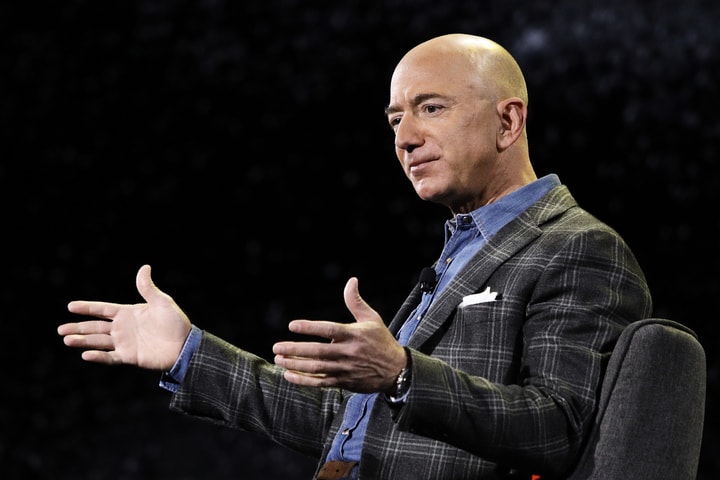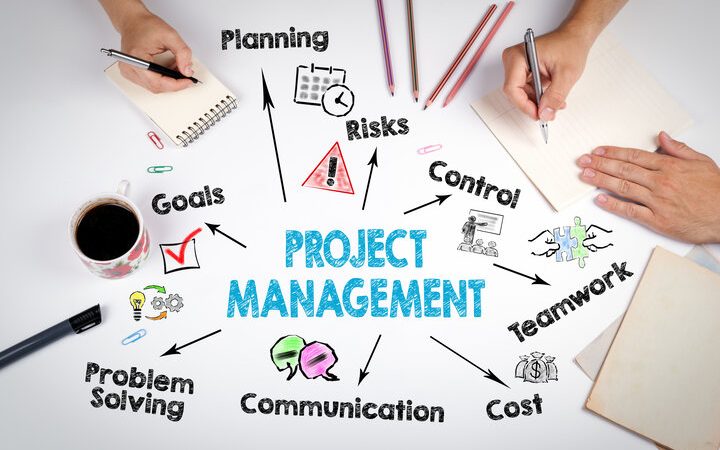5 Important lessons from Jeff Bezos To Entrepreneurs

Like any relevant public figure, the image and the judgment towards the founder of Amazon are not without controversy. However, this does not negate in any case the exemplary value that it occupies in the face of entrepreneurs.
Jeff Bezos is the leader of the now-called e-Commerce revolution, who saw the opportunity to found the famous multinational that occupies him when the Internet had not yet begun to emerge.
The businessman is also responsible for the aerospace company Blue Origin, and the private-philanthropic project Bezos Day One Fund. Although few remember him, he is also the owner of the prestigious The Washington Post and owns one of the largest fortunes in the world.
You may also be interested in A Glimpse of Amazon Go Walkout Technology
Table of Contents
Awareness And Strength of will
While his peers and competitors are mired in the role of technology in modern democracies, the CEO of Amazon prefers to turn to contextualize their experiences without falling into victimization.
Yes, his story invites you to dress up as a cheap pedagogue to sell the virtues of entrepreneurship. Bezos instead chooses to turn the “I” of his story into a metaphor for the American Dream, the real one.
Bezos comes from an unstructured family. His mother had him when he was only 17 years old in Albuquerque, New Mexico, and he had to deal with the social contempt of the 60s. This he uses as criticism and learning value.
Education and effort got him where he is. It does not imply that everyone must be able to equal him, ignoring socioeconomic conditions, but it does imply that the most precious asset for any life project is determination and effort.
Obsession for the customer
The volume of turnover, the ambition of the objectives, and the number of partners and stakeholders grows. In this natural process of growth, many companies forget who is the most important figure in the business.
Not infrequently this vision has led Amazon to ignore the interests – and rights – of its employees or shareholders. The price to pay always ended up reinforcing the image and reputation of the company.
This is how the e-commerce giant has managed to revolutionize the network. ” If we have done better than our colleagues on the Internet in the last six years, that is because we have focused on the customer experience, ” he said in 2013.
” The most important thing is to obsessively focus on the customer, ” he adds. “Our goal is to be the most customer-centric company on the planet.” It seems obvious, but the context clouds the vision of many entrepreneurs, who despise the client for their low negotiating power.
In the words of Tara-Nicholle Nelson, CEO of the American ICT consultancy: “ focus on eliminating the obstacles spread throughout your clients ‘ journey ”.
A fast Forward Step to organic growth
Neither high-profile acquisitions nor strategic mergers. Once the secure business base was achieved, Bezos was able to start betting on planning for years to come, which ignored the possibility of exercising the force of capital.
That is, to use the effects of economies of scale to expand or improve its market position. The brand of your company, on the other hand, claims to be where it is solely because of the quality of the service offered, and because of the persuasiveness of its marketing strategies.
” If you create a great experience, customers will tell each other “, illuminates the CEO. ” Word of mouth is very powerful .” And for that, it is imperative to fulfill the previous philosophy of Bezos: the obsession with the client.
By studying and knowing the consumer, it is possible to offer services and products aligned with their interests, which generate enough satisfaction for them to later act as brand ambassadors.
It does not mean that storytelling and eloquence are not important, but it does mean that they do not determine the ultimate success or failure of a business. For a startup, the quality and value of its offering are everything.
For Amazon means to save on advertising -is absent in the media and to ATL – devote its resources to improve and intensify its strategy
Sustainability above all
Although the first two decades of the Internet were surrounded by mysticism, propaganda, and little certainty of the future, the future of the multinationals that were born then has been built around sustainability.
Bezos has publicly acknowledged on several occasions the regret he felt for not having taken advantage of the commercial boom of the network at that time but reaffirms that knowledge after its definitive takeoff in 2008.
Since then, each and every one of the strategic decisions made for Amazon has been in agreement with future predictions and market trends.
“They often ask me what is going to happen in 10 years, ” says the businessman. ” It is a very interesting question, very common. What they never ask me is: what is not going to change in the next 10 years? “
The future is uncertain and Bezos has always known it. But this does not mean that there are no irrefutable and stable facts over time.
They want fast delivery and a great variety of products. It is impossible to imagine a future in which a client says to me, ‘Jeff, I love Amazon, but I wish the prices were a little higher.
When creating a startup planning, the most important thing is to identify and cement those services and virtues that will continue to be valid in the future. Everything that surrounds that core may change to adapt to the market.
Accept the risks
Betting on sustainability does not imply ruling out experimentation and risk. If there is such a level of failure among startups, it is because they are trying to open new market niches or create new product categories.
In a market as saturated as that born in the era of globalization, betting on the most disruptive ideas is a fundamental requirement to achieve success.
In Bezos’s opinion, if you make the decision to do only those things that you know will work, then you will be leaving many untapped opportunities on the table.






